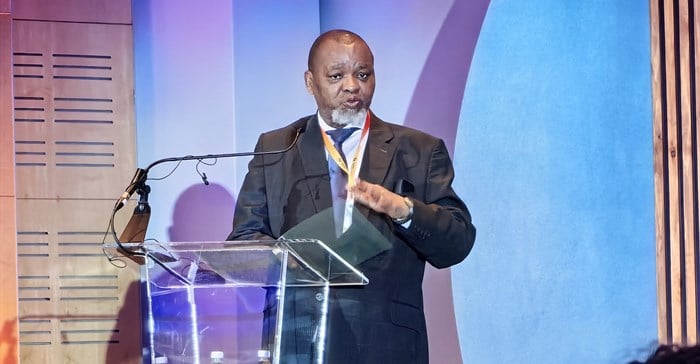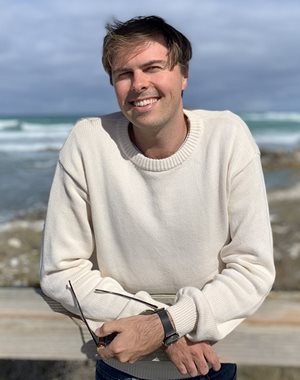
In May this year Ramaphosa’s Presidential Climate Committee went on record saying that gas should be used minimally as a rapidly deployable energy solution during the transition, but Ramaphosa has been quiet on the gas topic.
You’d need to go all the way back to the 2022 Mining Indaba to find the president give vocal support to the gas industry when he was advocating for SA’s right to freedom of choice in its transition to cleaner energy.
“To be able to confront the energy insecurity, it’s critical that South Africa be given the necessary development space. We must be allowed to transition (to clean energy) in an orderly and sustained manner. Any transition from coal as an energy source must happen in a realistic and sustainable way.”
Fast forward 12 months, however, and Ramaphosa is a vocal supporter of green hydrogen as the energy source that will power SA’s future.
“Anglo is developing an entire hydrogen ecosystem to support its local operations, and the launch of the NUGen truck was the first project for the Green Hydrogen Valley we hope to develop from Limpopo to KwaZulu-Natal,” said the president at Mining Indaba 2023.
“South Africa has abundant renewable energy resources and about 75% of the world’s platinum resources, which puts us in a favourable position to develop such technologies.”
South Africa Green Hydrogen Summit 2023 https://t.co/ytFct3zOt4
— Cyril Ramaphosa ���� (@CyrilRamaphosa) October 16, 2023
South Africa’s minister of mineral resources and energy, as always, is leading a gas-first conversation. Alongside his views that the existing coalfired power stations be fully utilised and even receive life extensions, Mantashe built a strong gas component into the 2019 Integrated Resource Plan.
"Gas to power technologies will provide the flexibility required to complement intermittent renewable energy and meet demand during peaking hours. While in the short term the opportunity is to pursue gas import options, local and regional gas resources will allow for scaling up within manageable risk levels,” explained Mantashe when the long-delayed plan was approved.
“Indigenous gas like coal-bed methane and ultimately local recoverable shale and coastal gas are options we are considering. The IRP 2019 makes provision for gas from year 2024. As previously indicated during the department budget vote, we intend to establish the first LNG hub in Coega IDZ in the Eastern Cape Province.”
The plan recognises gas as an alternative energy source that has the potential to motivate and promote sustainable energy and clean energy, diversify the energy mix and minimise the amount of carbon footprint left behind.
This sentiment was echoed by Kgosientsho Ramakgopa when he announced that 3GW of gas projects were going ahead – which is the exact IRP 2019 target for energy derived from gas technologies by 2024.

“The bottom line is the International Energy Agency has said that no new fossil fuels can be developed if we were to limit global warming to 1.5°C, which is consistent with the ambition of the Paris Climate Accord, to which South Africa is a signatory,” says Clean Creatives country director Stephen Horn.
Clean Creatives SA is a localised programme within the Fossil Free SA campaign to urge decision makers divest from fossil fuels. The volunteer organisation recently published an F-List which details 41 local creative agencies that do work for fossil fuel companies. That F-List is the primary offensive used to agitate for change to get SA’s top creatives to support clean energy initiatives.
“A lot of the time public money gets put towards this fossil fuel development. Our taxes are used to fund the trillions of subsidies going into the fossil fuel industry, and it comes down to policy decisions that are formed by people who are lobbied by these companies,” Horn told Bizcommunity in an interview.
On the surface the Clean Creatives report seems to be a cancel culture hit job to force through a change in thinking. But when the country’s minister in charge of both the mineral extraction process and the plan to deploy energy resources, the fight was never going to be fair.
“Yes, it is a transition to clean energy sources, but what we're saying is that transition narrative is being used by fossil fuel companies as a wedge to make it the smallest possible transition, so that they can profit as much as possible. What we need to do as media is look at neutral independent scientific studies,” says Horn.
From a government policy perspective, the Cyril Ramaphosa administration has no choice but to play both sides of the aisle.
Government needs to control spending and create jobs to keep the economy functioning and cannot pass up the opportunity to pursue revenue from the gas and oil opportunities.
“On the question of gas, discoveries have been made everywhere including the Free State and Mpumalanga. The shale gas in the Karoo is clearly having a moratorium on it. The court knows that the Department of Environment, Forestry and Fisheries must give us regulation,” Mantashe told an audience at Africa Energy Week in October.
“We have noticed an increase in interest to remove that moratorium and allow them to apply for the shale gas exploration on the West Coast too.”
South Africa’s neighbour Namibia is readying itself to exploit the offshore resources discovered in the Orange Basin that it shares with South Africa.
With the European economies coming to Africa to buy energy, the potential revenue is closer than the promise of a green hydrogen economy that still requires a lot of development.
At the moment, South Africa’s government is torn between the two realities of needing a swift solution to the energy crisis and fulfilling its commitment to the Paris Agreement. Minister Barbara Creecy’s latest actions are pointing to a tipping point towards the short-term gains.
